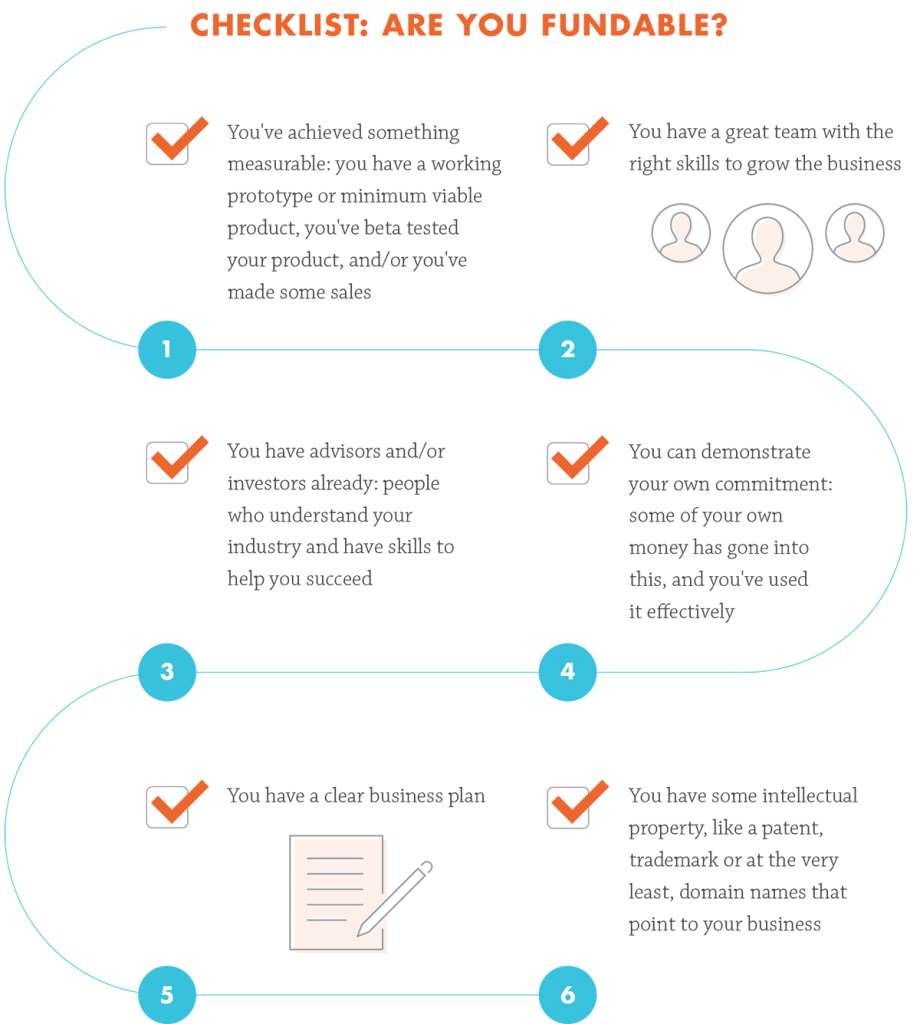Sick of chasing after angels, VCs, and bankers for funding to grow your business?
You might not have to anymore.
Equity Crowdfunding is giving promising young companies a chance to raise money from the crowd in a whole new way. Ever heard of it? If not, think of it like a Kickstarter campaign, but instead of a physical reward, people get shares of your company.
Sound too good to be true? It’s absolutely real: you can now sell shares of your business to almost anyone, as long as you’re incorporated, your head office is in a participating jurisdiction, you have a business plan, and you’re not doing anything illegal.
You also have to raise your funds on a secure equity crowdfunding portal. Securities regulators set the rules for exactly how you can raise money. In the USA, the JOBS Act allows equity crowdfunding, and in Canada, the Startup Crowdfunding Exemption is the one you want to look at. The JOBS Act lets a company raise in any 12-month period a maximum aggregate amount of $1 million in equity crowdfunding offerings conducted through a registered broker-dealer or financial portal. In Canada, the total amount that an issuer can raise under the crowdfunding prospectus exemption in a 12-month period to $1.5 million
But before we get to the specific rules, let’s talk a bit more about this exciting new opportunity.
If it seems like everywhere you look, doors are slamming and you just can’t get the money you need to grow your business, equity crowdfunding might be your answer.
How Does Equity Crowdfunding Work?
The crowdfunding business model can take a lot of different forms. Basically, it works by a business, person, or other organization that pools small amounts of money from multiple investors to help fund a venture. This is done by launching crowdfunding campaigns.
To raise any money with equity crowdfunding, you have to be totally transparent about your company’s performance and finances. This is a marketplace where the crowd gets to know everything about your business so they can make an educated decision to invest in you – or not. So if you don’t have a business plan, now’s the time to write one. If you’ve been slacking on ANY filings or taxes, catch up.
There’s an important legal component too; a securities lawyer can ensure your corporate documents are in order and help you structure your equity crowdfunding offer, including the type and price of shares. There are actually quite a few legal considerations to be made before you launch an equity crowdfunding campaign, so you must connect with a good lawyer. Yes, it costs money, and no, it’s not the most exciting part of your campaign, but you should do this part.
Selecting a Platform
Once all the housekeeping is done, you can choose a platform to showcase your company and your equity offer. Look for a portal that offers a lot of resources to help you mount a successful campaign. Just like Kickstarter, you have to have a great marketing campaign to make sure investors know about your offer, so the more support you can get from the platform, the better.
Also, take a look at the due diligence or vetting process that the platform uses. Some portals make companies apply to work with them, while others require just a simple sign-up process. The ones that are really easy to sign up for don’t always have the best companies using their services and are more vulnerable to fraud and unethical businesses. You might not want to be associated with those businesses, so take a look at the companies that are already raising money on a given platform before you decide to use them. Platforms also charge a fee, which could be a flat rate or a percentage of the money you raise. Fees could range from a few hundred dollars to several thousand.
Know that it will cost you some money to launch an equity crowdfunding campaign (in legal fees, platform fees, and consulting or business plan coaching fees). However, it’s so worth it to know that your business is healthy and organized, you have a superb business plan, and you have an excellent crowdfunding platform to help you boost your campaign.
Is My Company a Good Fit for Equity Crowdfunding?
Like rewards-based crowdfunding, equity crowdfunding requires a great marketing plan. You need a good way to get the crowd behind your idea and excited about investing in it.
But a successful campaign is about more than just good marketing. Your company also needs to be fundable, and that’s a bit of a subjective judgment.
Most companies need to be more than just ideas when they get into equity crowdfunding. If you’re not generating revenue, you’re about to. You might have a working prototype, or you’ve done beta testing to prove your concept. Perhaps you have investors or advisors endorsing you already, who will increase the confidence of the crowd.
Here are a few other ways to assess whether your company is fundable:
How Equity Crowdfunding Fills the Financing Gap
If you’re a startup owner then you know how hard it is to find financing for your business. This is especially true if your company is really new. It’s hard to get bank financing as a new company. Mostly because you don’t have many assets and startups are considered high-risk to lenders. Most venture capitalists won’t take a chance on a really small company and it’s hard to even grab their attention when thousands of new businesses are popping up all over North America every month. Angel funding is so incredibly risky. Also, there just aren’t that many Angel investors out there to capture. Not to mention many of them are tapped out already because they get so many pitches.
With equity crowdfunding, you can raise small amounts of money from almost any member of the public. This opens up to possibility of getting the cash you need from just about anyone.
Cons of Equity Crowdfunding
While crowdfunding seems like a great option for most businesses, there are some cons that even qualified businesses need to consider. Here are some of the downsides to the equity crowdfunding model.
Impact on Control and Ownership
When a company decides to issue equity to a large number of investors, it often faces a significant shift in its ownership dynamics. This process can lead to the dilution of the founding team’s ownership stake. This could potentially impact their control over the company. The more investors that come on board, the more diluted the original owners’ shares become. This change can be particularly challenging for founders who are used to having a strong hold over decision-making processes and the overall direction of the company.
Regulatory Challenges and Associated Costs
Engaging in equity crowdfunding introduces a set of regulatory hurdles that can be both complex and financially burdensome. This method of fundraising is governed by specific laws and regulations. We mentioned a few earlier. They are designed to protect investors and maintain market integrity.
Compliance with these regulations requires a thorough understanding of legal requirements and often necessitates the involvement of legal experts, which in turn can lead to significant costs. These costs and the effort required for compliance can be especially challenging for startups and smaller businesses with limited resources.
Increased Performance Pressure
Having a wide investor base also increases the pressure on a business to perform and deliver on its promises. When a large number of investors contribute funds, they naturally have expectations regarding the business’s performance and growth.
This expectation can lead to increased scrutiny of the company’s operations and financial results. The pressure to meet these expectations and to provide a return on investment can be a significant challenge, especially for early-stage companies that are still finding their footing in the market.
The Risks of Overfunding
While raising capital is often a primary goal for many businesses, there is a risk associated with overfunding. Securing more funds than what is actually needed can lead to inefficiencies in the utilization of resources. Excess capital can sometimes encourage reckless spending or a deviation from the core business strategy. Moreover, with more funds, the expectations of investors tend to rise, placing additional pressure on the company to deliver outsized returns.
Potential for Negative Publicity
Equity crowdfunding is a highly public process, which can have implications for a company’s brand and reputation. If a business fails to perform as expected or encounters significant challenges, it risks attracting negative publicity. This negative attention can be amplified due to the public nature of the fundraising process. Negative publicity not only affects the company’s image but can also have long-term impacts on customer trust and investor confidence. In a world where public perception can significantly impact a business’s success, managing the narrative around performance and investor relations becomes crucial.
Conclusion
For some businesses and startups, the equity crowdfunding model is a better option than VC and angel funding. For other types of businesses, it may not be the right choice. Entrepreneurs and founders need to consider all aspects of this model before using it as a way to raise capital.
Also read:
The Crowdfunding Business Model Explained
4 Main Types of Crowdfunding Business Models
8 Types of Business Models for Startups to Utilize
This article was first published in 2016 but has been updated and expanded.











